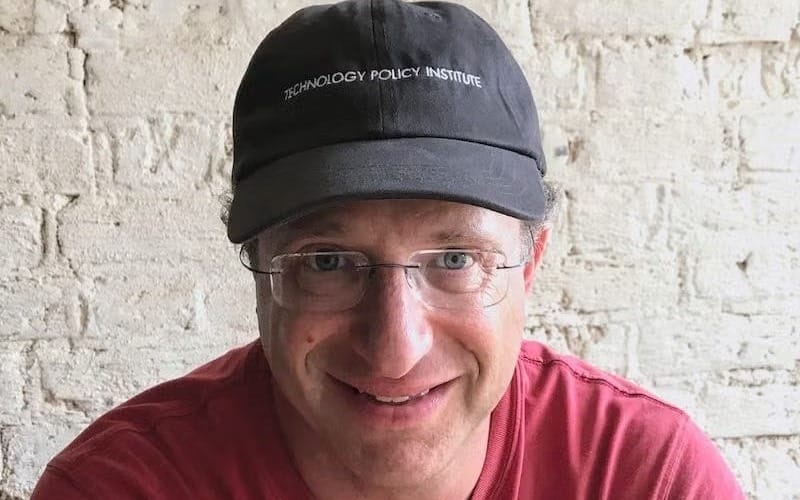Starlink and DOGE: The $42 Billion Conflict of Interest in Rural Broadband
This combination casts doubt on the government's ability to be truly 'technology neutral'.
Scott Wallsten

The Trump Administration nominee who will oversee distribution of $42.45 billion in broadband subsidies has pledged to move away from an 'extreme tech bias in favor of fiber' toward technology neutrality—a welcome shift that could bring transformative connectivity to rural America.
Low-earth orbit satellite broadband has fundamentally changed the economics of rural deployment, and a neutral approach that considers cost, quality, and speed of implementation could stretch taxpayer dollars significantly further through an efficient mix of fiber, terrestrial wireless, and satellite technologies.
While the technology impressively delivers high-quality broadband just about anywhere in the world, conflicts of interest are poised to cast doubt over the fairness of a process that is set to deliver tens of billions of dollars to broadband providers.
The problem is that Starlink, currently the only U.S. provider of LEO broadband service, is owned by Elon Musk—the same person who, as head of DOGE, wields significant influence over federal agencies and spending decisions. DOGE's mandate to eliminate government inefficiency gives Musk unprecedented power across multiple departments. This combination casts doubt on the government's ability to be truly “technology neutral.”
In a normal world, government would set rules for broadband providers to compete for the subsidies and would choose subsidy recipients based on certain quality measures, the cost of provision, and the time required to be able to provide service. Starlink would compete to provide service in a technology-neutral bidding process and states would allocate funds accordingly.
But this isn’t a normal world, and creating a process for choosing providers is not nearly as straightforward as the previous paragraph implies. Policymakers have to make a large number of choices when implementing the program, including how to draw the areas in which providers would bid to provide service, whether there should be a threshold cost to provide service per location above which the government decides fiber is not cost-effective and, if so, what that level should be. Each decision can mean millions or billions of dollars going to different providers.
DOGE appears to have authority over agency staffing, potential agency elimination, and government contract approvals. Sometimes that involvement affects Musk’s own companies. The FAA recently contracted with Starlink in a deal shrouded in secrecy as part of a technology upgrade that was already being done via a transparent contract by Verizon. Potential influence extends to state politics, as demonstrated by Musk’s involvement in the recent Wisconsin election, where he spent about $20 million to support a favored candidate.
In this context, it's difficult to imagine how officials making decisions about Starlink's funding can remain completely impartial.
To be sure, Starlink got a raw deal under the previous administration. It won almost $900 million to serve about 640,000 locations in a 2020 auction, but the Federal Communications Commission unilaterally canceled Starlink’s bid in 2022. And the Biden NTIA noted satellite would essentially be excluded from the $42.5 billion Broadband, Equity, Access, and Deployment program.
But that mistreatment is not an excuse to overlook real conflicts of interests today.
Conflict-of-interest rules exist for a reason. At worst, connected individuals could otherwise steer lucrative activities to favors, family, and friends. The story of President Lyndon Johnson arranging for his wife to receive television broadcast licenses from the FCC is legend. But even the appearance of self-dealing can render a project or policy suspect.
Throughout its history, the U.S. has developed various conflict-of-interest rules to keep those with political power from benefiting personally from that power. Time Magazine recently documented this history, beginning with rules in the 1850s and 1860s meant to avoid corruption in procurement for the Union Army. It continues today with the Office of Government Ethics and efforts to prevent congresspeople from trading stocks based on their insider knowledge.
Elon Musk’s DOGE leadership and his control of companies like SpaceX and Starlink that contract with the government are not compatible. No honest understanding of conflict of interest rules would allow it.
One solution would be to prevent Starlink from participating in BEAD, but that’s a cut-off-your-nose-to-spite-your-face option. It would harm rural residents, cause taxpayers to pay more than they should by blocking the most cost-effective solution, and possibly put a damper on one of the most promising new technologies of the decade. Instead, the solution must ensure that BEAD includes all technologies while maintaining objective integrity.
In the longer run, new competition from terrestrial fixed wireless and other LEO satellite providers, like Amazon’s Kuiper, will lessen the problem. To that end, the FCC should continue to ensure that regulatory barriers do not delay Kuiper’s launch.
But the only real solution is obvious. Musk either needs to remove himself completely from DOGE or give up control of his companies. The latter borders on the absurd. But there are rumors of his exit from government, so perhaps that is realistic. As long as he is both involved in the government and running companies that compete for government contracts it is impossible to trust that those are kept separate.
Starlink is too important for rural America for its contracts to be considered suspect. The sooner Musk is disentangled from running the government and running his companies the sooner we’ll be able to believe that rules regarding Starlink in BEAD are fair.
Scott Wallsten is president and senior fellow at the Technology Policy Institute (TPI) and a senior policy scholar at the Georgetown Center for Business and Public Policy. His research focuses on telecommunications, regulation, competition, and technology policy. He holds a PhD in economics from Stanford University.This Expert Opinion is exclusive to Broadband Breakfast.
Broadband Breakfast accepts commentary from informed observers of the broadband scene. Please send pieces to commentary@breakfast.media. The views expressed in Expert Opinion pieces do not necessarily reflect the views of Broadband Breakfast and Breakfast Media LLC.









Member discussion